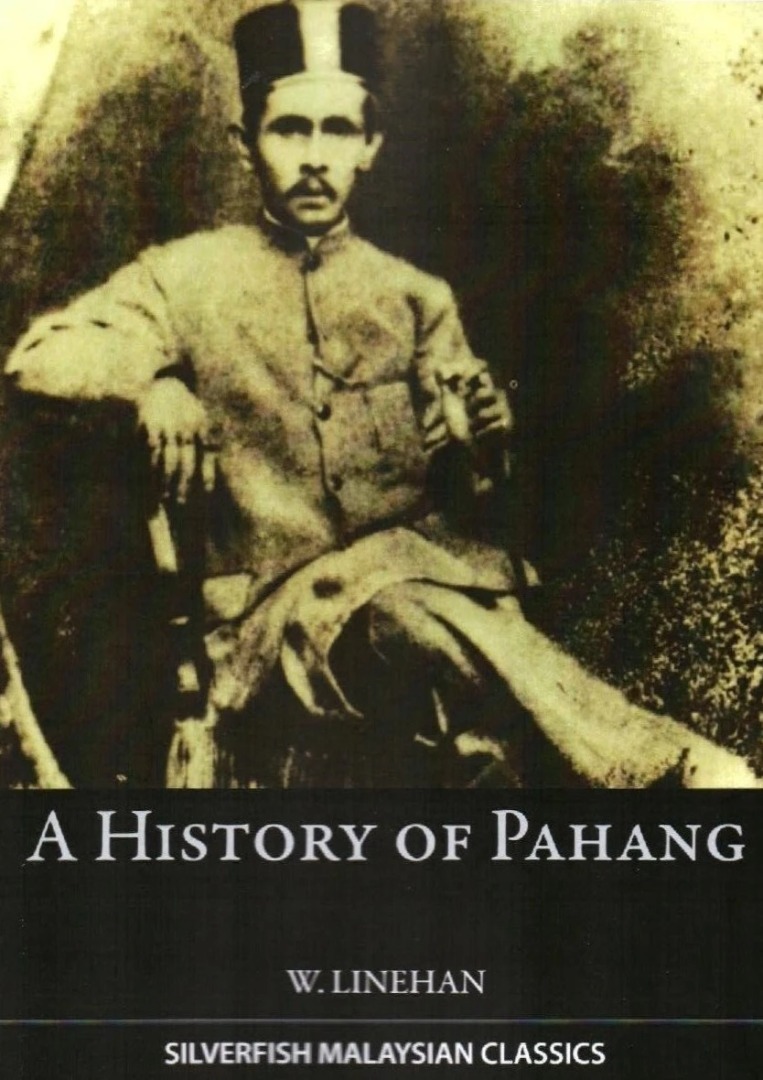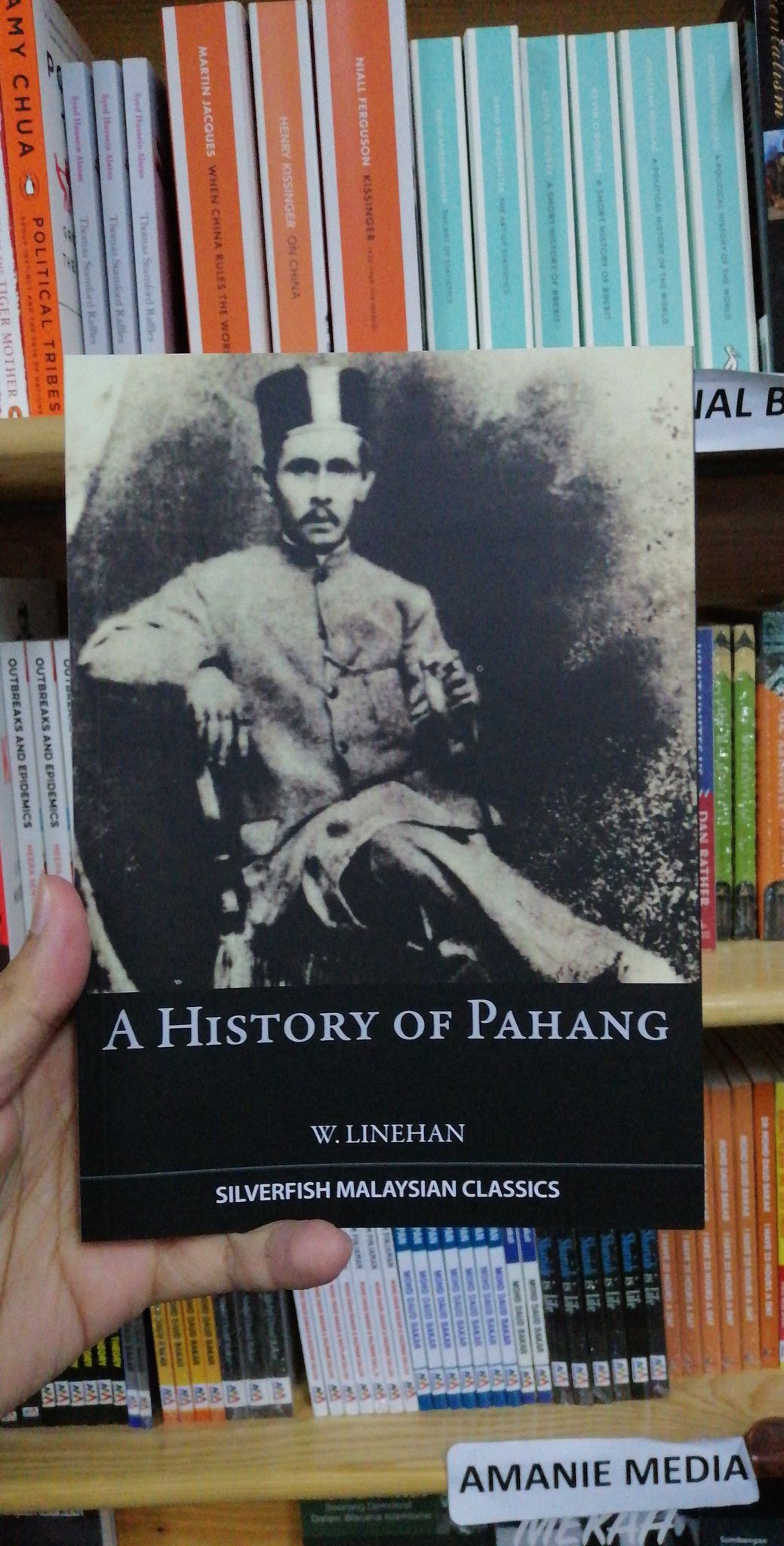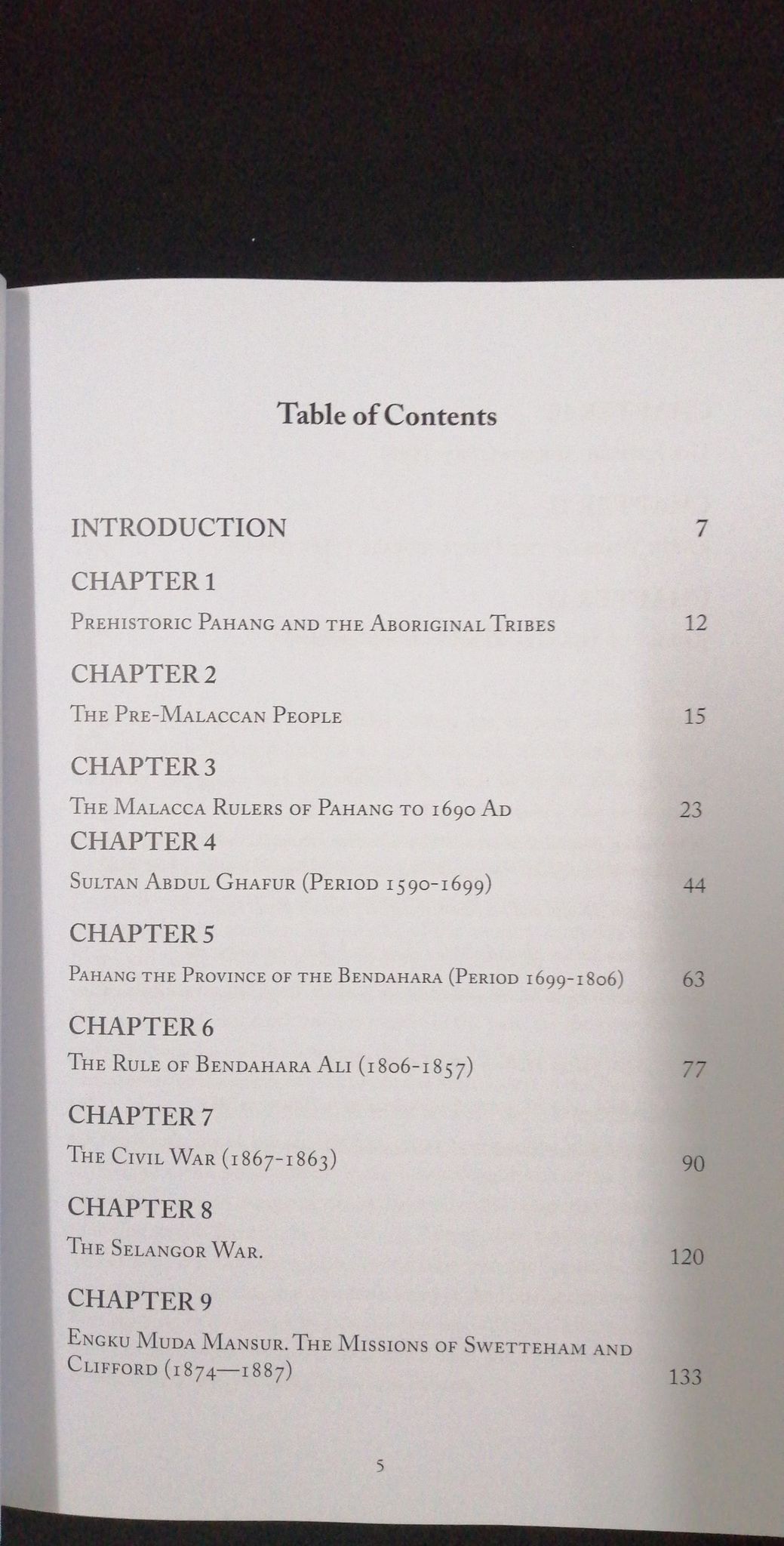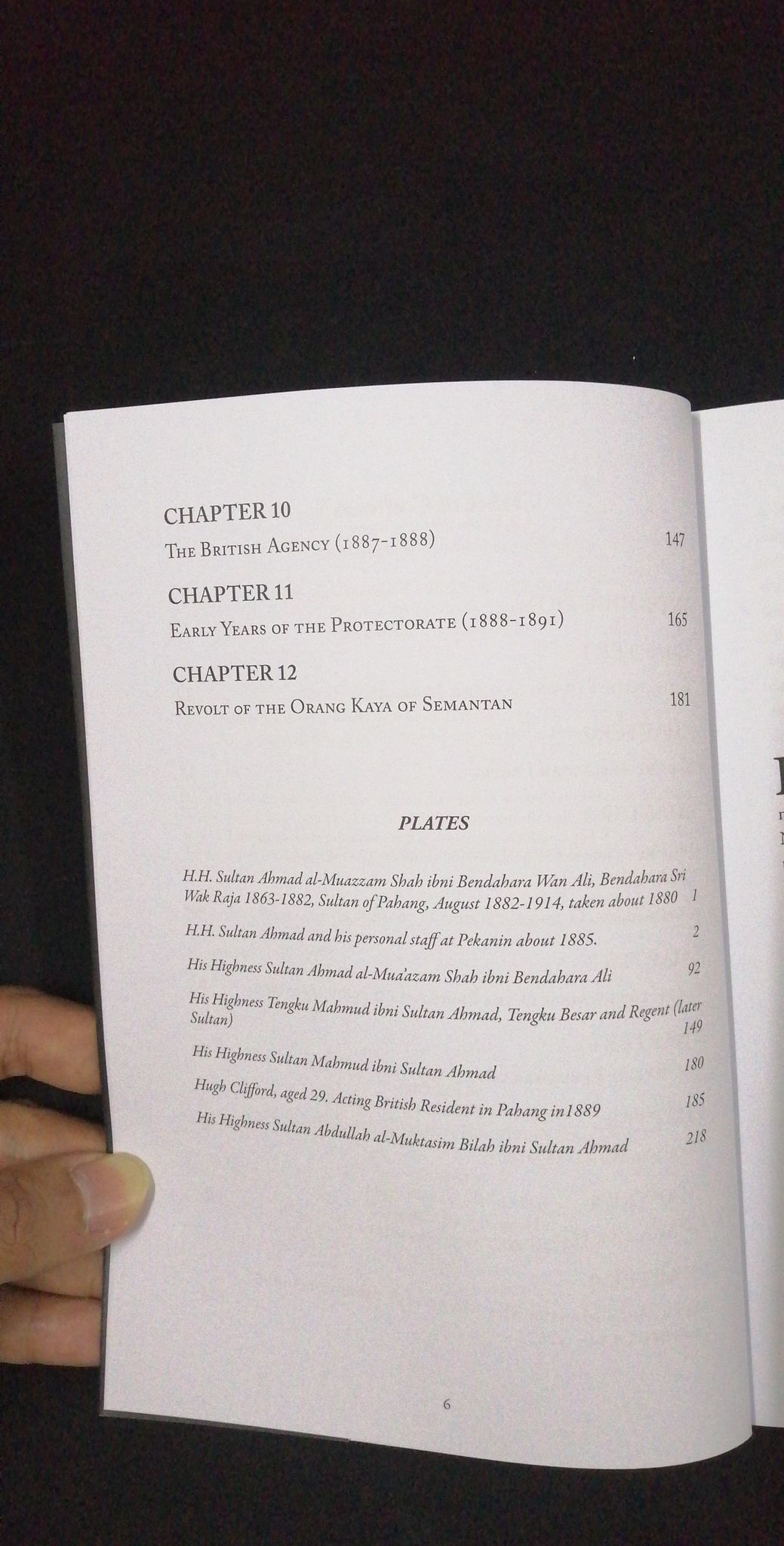A History of Pahang
Author: W. Linehan
Publisher: Silverfish
ISBN:
Weight: 0.305
Year: 2020
Page: 218pp
Price : RM45
Pahang, the largest of the Malay States, has an area 14,000 square miles with a long sea-board on the China Sea. It is bounded on the
north by Trengganu and Kelantan, on the west by Perak, Selangor and Negri Sembilan, and on the south by Johore. Before the rise of Malacca the kingdom of Pahang embraced the whole of the southern part of the Peninsula. Majapahit used the name Pahang to designate the Malay Peninsula—an indication of the importance of this ancient State. In the 16th century the southern boundaries of the country extended to Sedili Besar, and on the west it touched Rembau and Selangor.
To the north and west Pahang is encircled by hills. Its main water systems, the high-ways of communication in the past, are the river Pahang and its tributaries, and the Kuantan, the Bébar, the Rompin, and the Endau. The country to the south-west between the head-waters of the Bera and the Muar, where the ancient over-land route between the east and the west of the Peninsula passed, is only 180 feet above sea-level. The low-lying nature of the land at this point and the breadth and sluggishness of the Béra, over part of its course an elongated marsh, have led to the conjecture‘ that at one time this stream formed the bed of the Pahang river which then flowed, not, as now, east into the China sea but west into the Straits of Malacca. It has been pointed out that the sharp bend in the Pahang river near Kuala Béra suggests river-capture by a stream flowing into the China sea. Colour is lent to the conjecture by old maps of the 16th and 17th centuries which show a river flowing between Muar and Pahang.















